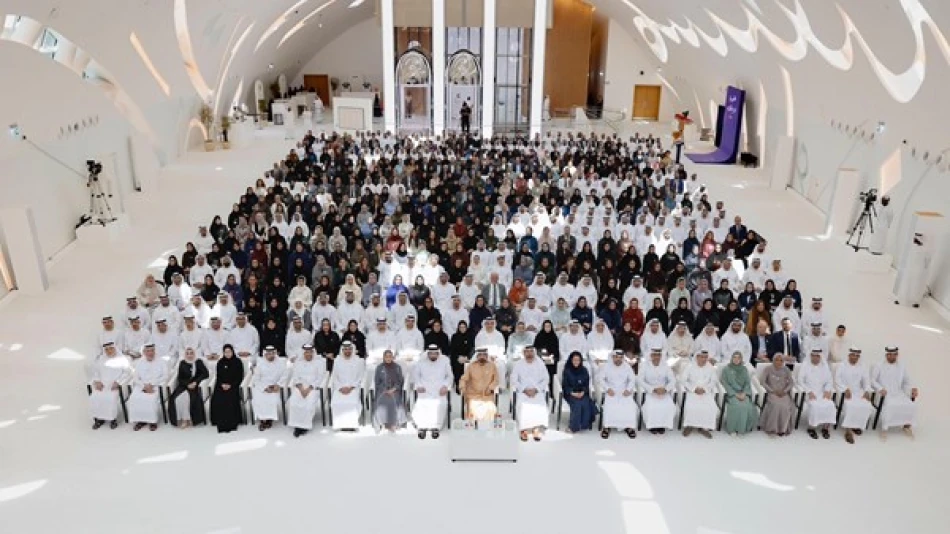
UAE Vice President Meets with His Executive Team, Discusses Strategic Vision
Dubai's Leadership Sets Bold Ambitions for 2025-2026 as UAE Strengthens Global Competitiveness
Sheikh Mohammed bin Rashid Al Maktoum, UAE Vice President and Prime Minister, has challenged his long-standing leadership team to deliver the country's most ambitious governmental performance yet in 2025-2026. During his annual leadership review, the Dubai ruler emphasized continuous innovation and public service excellence, signaling the UAE's determination to maintain its edge as a global business and innovation hub amid intensifying regional competition.
25 Years of Strategic Continuity Pays Dividends
The meeting highlighted a key strength of UAE governance: leadership stability and institutional memory. Sheikh Mohammed's team, many of whom have worked with him for over 25 years, represents a rare continuity in government leadership that has enabled long-term strategic planning and execution.
This stability contrasts sharply with the frequent cabinet reshuffles seen in many developed democracies, where policy directions often shift with electoral cycles. The UAE's approach has allowed for sustained focus on mega-projects like the Dubai International Financial Centre, the Mohammed bin Rashid Al Maktoum Solar Park, and the country's space program.
Setting the Stage for Enhanced Global Competition
The timing of this leadership directive is significant. As global economic uncertainty persists and regional competitors like Saudi Arabia pour billions into Vision 2030 projects, the UAE faces pressure to maintain its position as the Middle East's premier business destination.
Economic Diversification Under Pressure
The 2025-2026 governmental season comes at a critical juncture for the UAE's diversification strategy. With oil prices volatile and neighboring Saudi Arabia investing heavily in tourism, technology, and financial services—traditionally UAE strongholds—Dubai and the broader UAE must accelerate innovation to stay ahead.
Recent initiatives suggest the direction of this ambition: the UAE's artificial intelligence strategy, its push to become a global cryptocurrency hub, and major investments in renewable energy and space technology. The challenge for Sheikh Mohammed's team will be translating these high-level strategies into measurable outcomes that reinforce the UAE's competitive advantages.
Implications for Business and Investment Climate
For international investors and multinational corporations, this leadership commitment signals continued policy stability and government focus on business-friendly reforms. The UAE's track record of rapid policy implementation—from introducing corporate taxation to launching new visa categories—suggests that the 2025-2026 period could bring significant regulatory and infrastructure developments.
Key areas likely to see accelerated development include: Further digitization of government services, expanded free zone offerings, enhanced intellectual property protections, and potentially new incentives for emerging technology sectors like quantum computing and biotechnology.
Regional Leadership Stakes Rise
The emphasis on making 2025-2026 the "best governmental season" reflects broader regional dynamics. Saudi Arabia's NEOM project, Qatar's post-World Cup economic diversification, and Egypt's new administrative capital all represent significant competition for investment flows and regional influence.
However, the UAE's advantage lies in its proven execution capability and established international networks. Unlike ambitious projects that remain largely conceptual, the UAE has consistently delivered on major initiatives—from Expo 2020 Dubai to the successful Mars mission.
The real test will be whether Sheikh Mohammed's experienced team can maintain this execution edge while scaling up to meet even more ambitious targets in an increasingly competitive regional landscape.
Most Viewed News

 Layla Al Mansoori
Layla Al Mansoori






